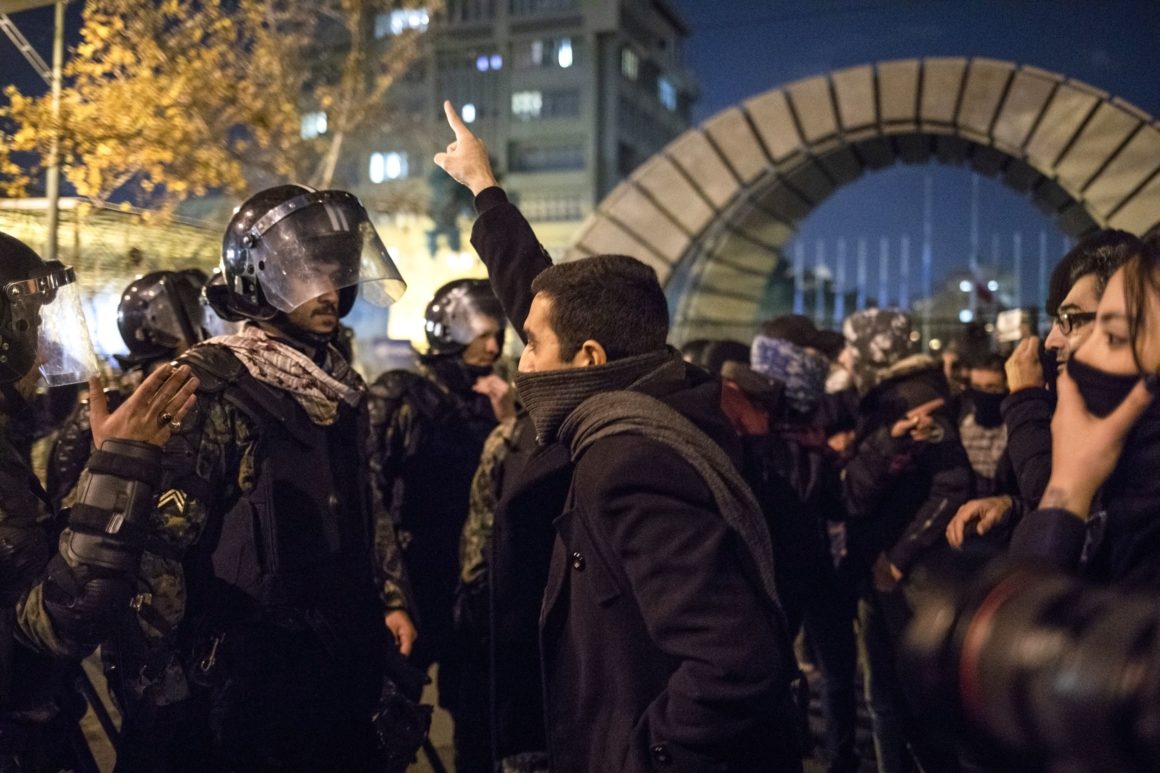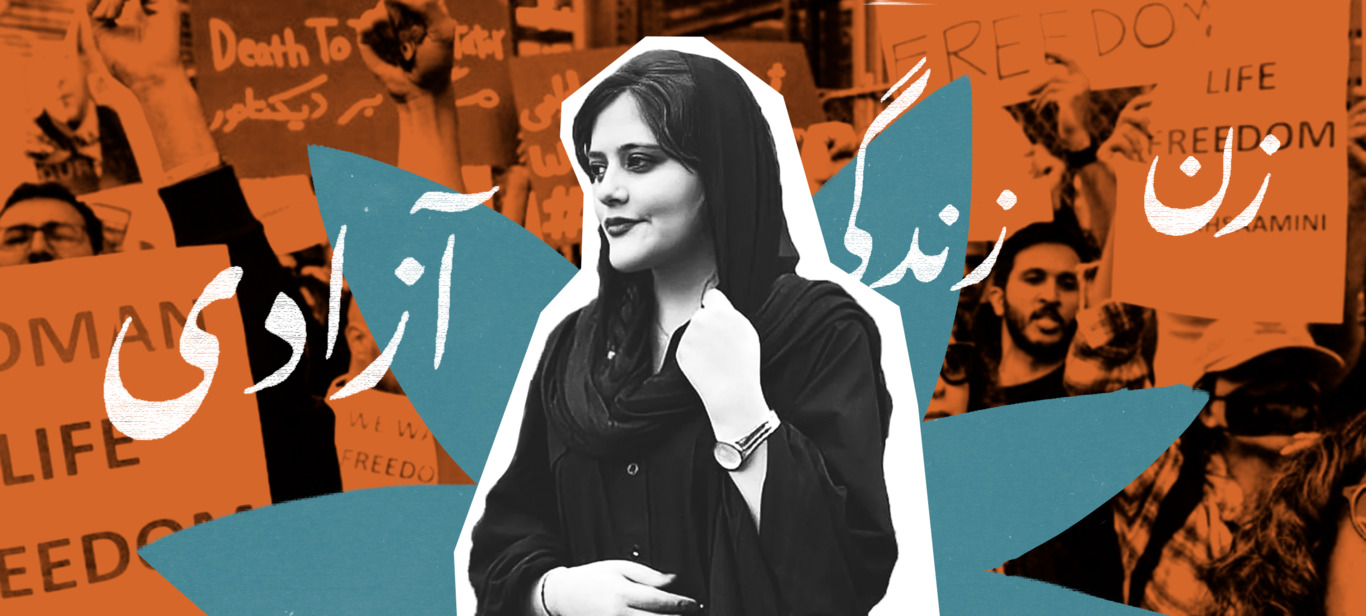The US and Iran teetered on the brink of war as Iranian missiles hit the American bases in Iraq in response to the killing of the Quds Corps commander Qasem Soleimani. In this interview, Marxist scholar Jakob Rigi discusses these events in the context of the Iranian domestic politics and the social tensions in the Middle East.
What in your opinion happened on January 8? It seems to have been the worst deterioration of the US-Iranian relations in decades.
The worst sign of this deterioration was the assassination of Soleimani, but what happened last night [the Iranian Revolutionary Guards hit a few US military bases in Iraq with ballistic missiles ] was just a spectacle. I mean they fired some missiles to the American bases, and basically I think nothing was damaged and no one was killed. It was something symbolic. And some people say they [the Iranians and Americans] had an agreement.
It seems that the Iranians warned the Americans.
Yes, so that the Iranians save their face and that no American would be wounded or killed. But I think the crucial thing was the killing of Soleimani. And the killing of Soleimani was somehow a response to a provocation by the Iranian government. One of the slogans of Trump’s presidential campaign was that he would not have a war in the Middle East and he would withdraw the American troops from there. Once in power, he went out from the nuclear treaty with Iran and imposed sanction on it. In response the Iranian Revolutionary Guards and Khamenei started to pester Trump by terroristic actions, assuming that Trump would not respond militarily since he didn’t want a war. First they damaged some oil ships in the Persian Gulf, shot the American drone and bombed the Aramco’s oilfield in Saudi Arabia. And the Americans didn’t respond. There was a red line for all these actions: the Iranians were careful to kill no American. Emboldened by no military response by Americans [Americans avenged the shooting of the done by a cyberattack on the security system of the Revolutionary Guards] Soleimani and his agents in Iraq started to probe this red line. The Shia paramilitaries, close associates of Soleimani, started to fire Katyusha missiles on the American positions in Iraq. This was initially a game of intimidation, which intensified a month ago. They probably fired 30-40 missiles since then. But then they crossed the red line by attacking a base in Kirkuk, killing an American civilian contractor, and wounding several Americans and Iraqis. Americans responded vehemently by bombing two military bases of Hash’d al Shaabi, a confederation of Iraqi paramilitaries, killing 25 and wounding 51 members of the militias.
The Iraqi militias that was organized by Iran?
Yes, a product of Soleimani. In response this militia organized a demonstration against the American embassy in Baghdad, breaking the door, setting it on fire. And this was very alarming for Trump. 40 years ago Islamic students occupied the American embassy in Tehran and took into hostage 52 Americans. When Clinton was the secretary of state, the American embassy was occupied in Libya and some American were killed. Clinton was basically impeached by the Republicans for this. And Trump didn’t want this. Soleimani was shot in Baghdad Airport in this context. The Americans are completely right when they say: Soleimani flew from Syria to Iraq to meet Al-Muhandis, who was the deputy commander of Hash’d al Shaabi, to organize new military actions against American targets.
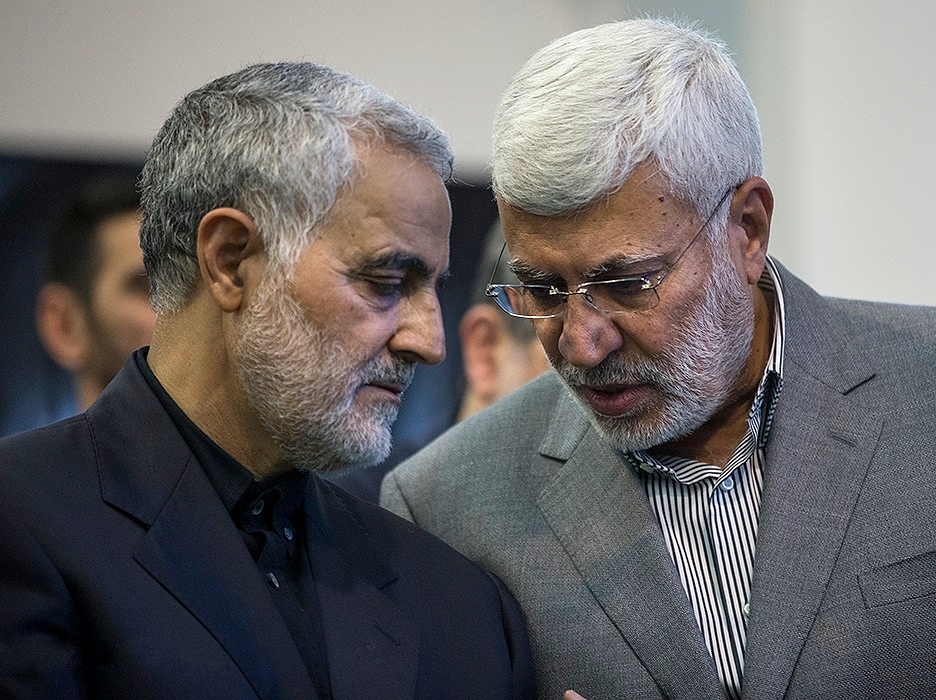
Let’s stop for a moment to clarify the relations between Soleimani and the Iraqi government. So, there is the Shia militia, there is the official Iraqi government. Do you know what was the attitude of the government towards it?
The Iraqi government was in a very complex situation. In order to understand the Iraqi government we need to go back to the Obama period. So, Bush occupied Iraq, Obama pulled out. And when he pulled out, the government in Baghdad was a Shia government, and Maliki was the Prime Minister. But his government was allied with Iran and Shia-dominated, sectarian. There was a lot of discrimination against the Sunnis. The rise of Daesh was partly a reaction to this discrimination. The Iraqi government invited the Americans back to help it to combat Daesh. Soleimani's Hash’d al Shaabi also took part in the fight against Daesh. Daesh was dismantled mostly by the Kurds, especially the Syrian Kurds in Rojava. The American air power, the Iraqi Army and Hash’d al Shaabi were also instrumental in the dismantling of Daesh. After the defeat of Deash the Iraqi people, especially the Shias, started to protest against the government of Prime Minister Maliki . They considered his government a sectarian and corrupt one, blamed it for the rise of Daesh and forced it to resign. After the elections, a new government under prime minister Abdul-Mahdi was formed. He was also a man of Iran and Hash’d al Shaabi. There are Shia parties which do not support Iran. There are Sunni and Kurdish political forces. And the military is trained by the Americans.
If anything the corruption grew further under Abdul-Mahdi. This triggered a new weave of protests in Iraq which is still going on. The protesters claim that the government and the militia allied with Iran constitute a mafia. They plunder Iraqi resources, especially oil revenues. Poverty and unemployment have grown dramatically compared with the Saddam Hussein era. The protesters demand a non-corrupt and non-sectarian government. They also demand jobs and a fair redistribution system. The pro-Iranian militia and security forces have killed 450 people and wounded 20000. The Iraqi protesters burned pictures of Khamenei, the Iranian supreme leader and Soleimani. They also occupied Iranian consulates in Najaf and Karbala, holy Shia cities in Iraq, and burned them down. Finally the Abdul-Mahdi government resigned and the parliament passed new laws which would allegedly guarantee non-sectarian elections. After the resigning of Abdul Mehdi the protests halted and the protesters gave a deadline to the parliament to appoint a non-sectarian care-taking prime minister to organize non-sectarian elections. The deadline has expired a few days ago but the demand for the appointment of a non-sectarian care-taker prime minister was not met. So the protests resumed. In Iraq, the situation is very complex, and we have process, which the protesters call “revolution”. And probably it is a revolution, a political revolution. So the killing of Soleimani is part of a very complex situation.
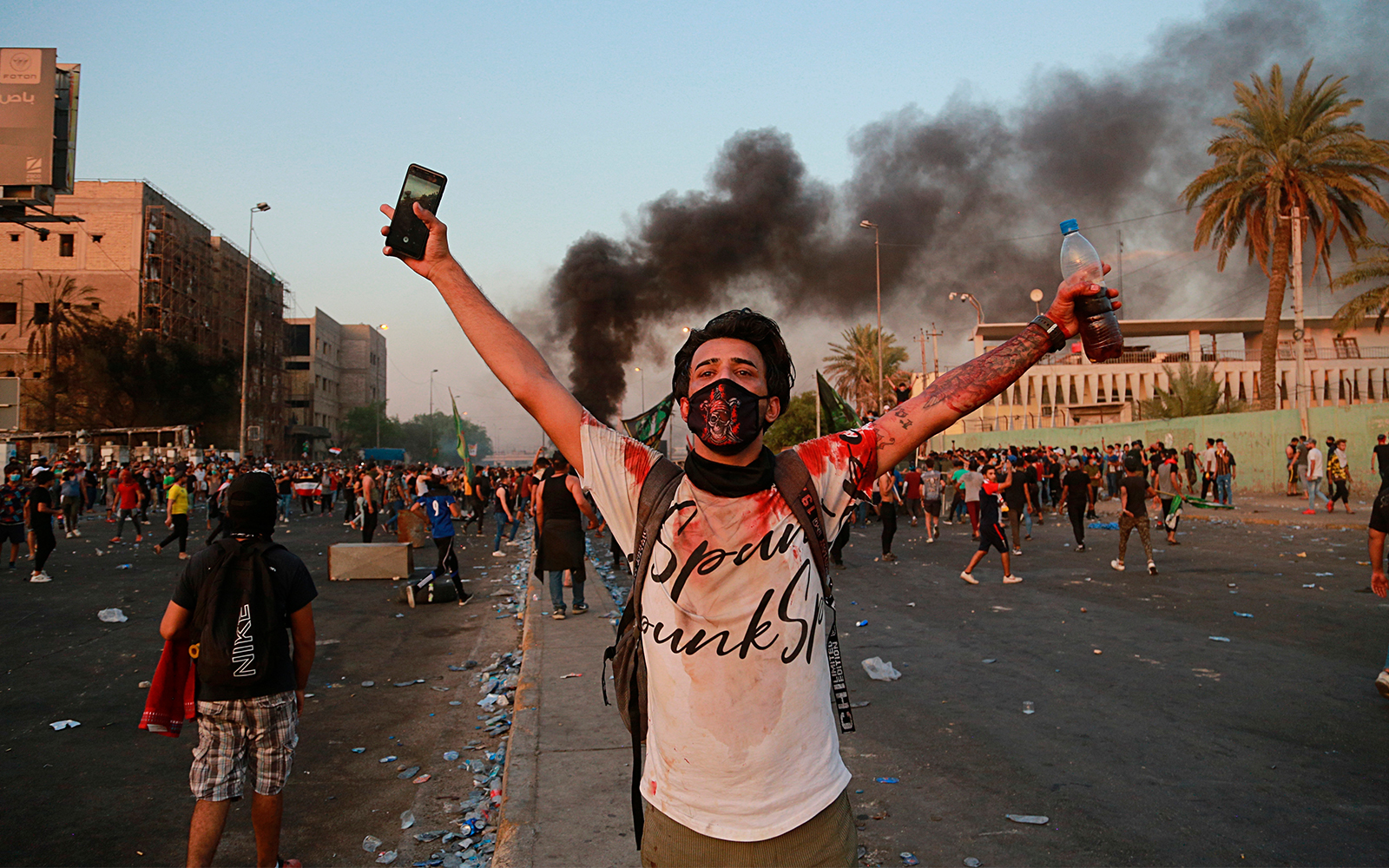
But now it is a stalemate between the protesters and the government?
Yes, actually but not formally. Formally the ruling elites have accepted the demands of the protesters for appointing a new care-taker prime minister and the new elections. But the individuals that have been nominated for the post have all been pro-Iranian and pro-militia. So the protesters rejected them. The stalemate is around who will be the care-taker prime minister until the elections.
Elections based on constituencies?
Yes, non-sectarian constituencies. In previous elections candidates were nominated by political blocks based on party alliances. The protesters demand that this will be replaced by territorial voting system in which candidates are nominated by political blocks.
The President was a more or less neutral figure?
He is a Kurd. He is not pro-American, but neither does he want to be in the pocket of the pro-Iranian paramilitaries. Although his position is merely ceremonial, so far he has sided with the protesters and rejected the pro-militia/pro-Iranian nominees of the for the position of the care-taker prime minister.
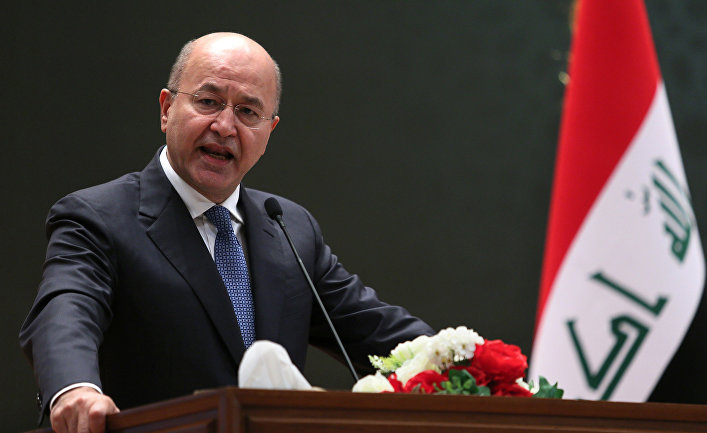
Okay, but now these protesters are in the crossfire between Iran and the US. Do you see what their sentiments are? Are they siding with the US now?
No, they don’t side with the US, nor do they side with Iran. Their main slogan is “We don’t want that the Iraqi government get involved in international conflicts." They are very clever. And actually today one Iraqi posted a joke on Facebook: “Iranian tells American go [out] from Iraq, American tells Iranian go [out] from Iraq”. Then he said “Okay we [Iraqis] go [out] from Iraq. Good buy!” Anyway, they don’t like either camp, so they want that both sides stop intervening in Iraq.
Let’s return to the Iranian situation. You said that these protests in Iraq were similar to protests in Iran?
The Iraqi protests were like the Iranian in 2017-2018 that we discussed in another interview before. The recent three-day Iranian protest in November 2019 were a resumption of 2017-2018 protests but with more energy and rage and in a much greater scale. These three-day protests were a reaction to the government raising the price of petrol. So, when they said the price of petrol would go up, people spontaneously rose up. And in many places, they took the streets and cities. And then the government started to brutally shoot them. After three days, the protests were put down. Although the immediate motivation was economic, the protests was fundamentally revolutionary and political. The protesters everywhere shouted subversive slogan, attacked the repressive forces and burn down the sign and sites of power. We can say the 2017-2018 protests was a rehearsal for the November 2019 protests. And the November 20119 protests for further revolutionary protests and probably and hopefully the revolution itself.
But this time it was much more violent.
Violent on the government side. They killed 1500 people. I don’t know how many people were wounded. They arrested 8 thousands people. They were shooting directly into the crowd. They killed many more people this time. Most protesters came from lower classes.
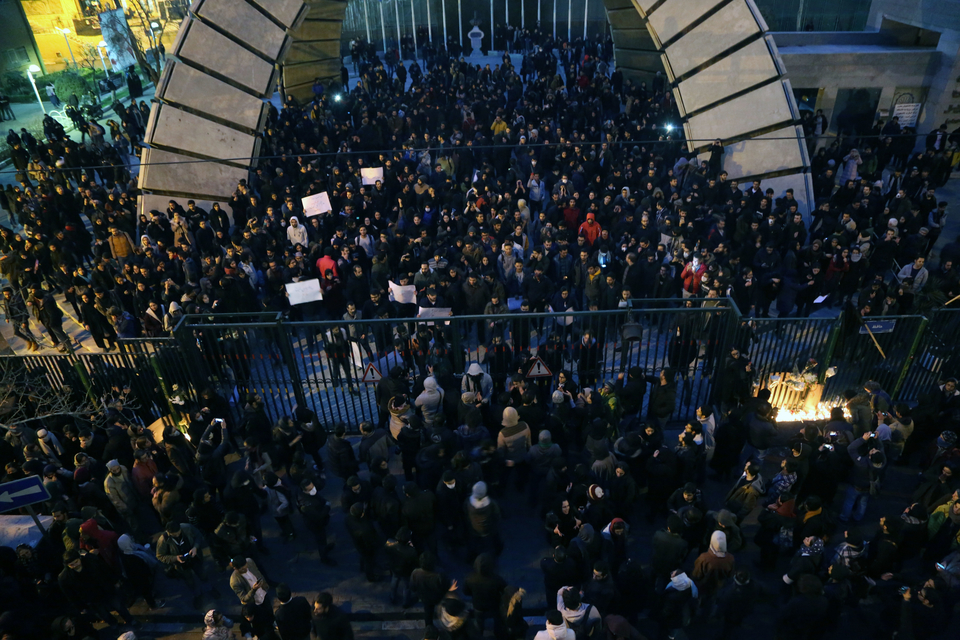
Why do you think it’s the case?
Because the clerical regime felt really threatened. Khamenei had said in a security meeting: “I think that Islamic Republic is in danger. Do anything you can to put down the protest.” It was a direct order by Khamenei to kill people. And they killed.
But what is really interesting is that in Lebanon people also protest against corruption and injustice, they partly blame Iran and its proxy Hezbollah for this situation.
So Soleimani was a sort of a policeman of the region?
Soleimani organized this Iranian-friendly paramilitaries in Iraq, in Lebanon, in Yemen, in Pakistan, in Afghanistan, and as well elsewhere.
And the paramilitaries participated in repressing these the protesters in Lebanon, Iraq and Iran?
In Lebanon they didn’t do so much. When the demonstrators shouted slogans against Hezbollah, they were harassed by Hezbollah supporters. But this did not amount to a massive repression. But in Iraq – yes, these paramilitaries were one of the main instruments of repression. The police assisted them. It was paramilitaries, wearing masks, who shot protesters on the streets and in the squares and from roof-tops. Iraqi protesters view these paramilitary as the agents of Iran. Of course they were. They killed 450 Iraqis and wounded 20000. And Soleimani traveled a few times during the protest in Iraq to Iraq to unite different factions of the Shia para-militaries. And they say that he went to Baghdad to encourage the militia to suppress the protesters, telling them “learn from us [the Iranian Revolutionary Guard] to how put down protests.”
So, he was not just doing some espionage and organizing purely violent actions, he was also a political middleman of sorts?
Yeah. In a way, he acted in the Middle East, in Lebanon, in Syria, in Iraq both as a foreign secretary and military organizer. Compared with Soleimani, Zarif, the actual foreign secretary, played a secondary role in the foreign policy. He was also a sort of political mobilizer-organizer of grass root Shia movements. He used these movements to organize the Shia militias in different countries. He was also a first class military general and played an important role in organizing Shia para-militaries in different combat fields. Soleimani also negotiated with, bribed, intimidated and influenced politicians in Afghanistan, Pakistan, Iraq, Lebanon, Syria, Iraq and Yemen. He was Khamenei and the Revolutionary Guards effective international arm.
.jpg)
Can we now briefly spend some time on Soleimani, on his role inside Iran and his rise to this position of regional importance?
Soleimani was an interesting character. He was a kind of a worker from Kerman. He was 63 when killed, so during the 1979 Revolution he was probably 20 years old and he joined the Revolutionary Guards and took part in the war with Iraq. After the war he became the leader of the International Branch of the Revolutionary Guards called Quds. Indeed Quds organized Iranian paramilitaries in different countries.
So basically, he was doing something similar to the Salafists in Afghanistan in the 80s, that were bringing in militants from other Muslim countries?
Yes, he was like Bin Laden, but more complex figure than him. Unlike Bin Laden, he was a central figure of a major state in the Middle East. Soleimani was a major figure inside the ruling elite, the second person after Khamenei. The Iranian clerical rule was/is going through a very severe crisis of legitimacy. The killing of Soleimani is a big loss. Although Khamenei as the supreme-leader has lost his legitimacy among people, he is the pillar of the unity of the ruling elite. Soleimani also played an important role in the unification of the different factions of the regime. He had become a mythological and charismatic figure for the supporters of the regime. So he could play an important role after Khamenei’s death in sustaining the unity of the factions of the elite.
Why?
Soleimani was a very brave and militarily smart guy. He organized military organizations in the war fronts in Iraq and Syria. His likes are rare among the Revolutionary Guards. Most of these generals have become corrupt smugglers. I believe Soleimani’s qualities made him stand out among them. This was the source of his charisma and cult among the supporters of the regime. Probably Khamenei wanted to make him the next President. As a president he could be a good support for the cleric who will become the supreme-leader after Khamenei’s death. He was the big Rambo for the supporters of the regime. He was really mythologized in the media of the Islamic Republic.
Really? I thought from what we can read in Western media that he was sort of a secretive guy: no one knows his real name… So he was genuinely popular.
No, he was popular among the ruling elite. He was in the news, he met CIA officers in Iraq with his own name. He was well known in the country. Strangely some Iranian monarchists who oppose the Islamic regime consider the killing of Soleimani a national loss.
People respected him?
Yeah, but not the protesters. There were people outside of the supporters of the regime who respect him, nationalists. They imagined him as a new "Cyrus the Great” who would re-establish the Persian Empire. This stupid brand of nationalism is very common in Iran.
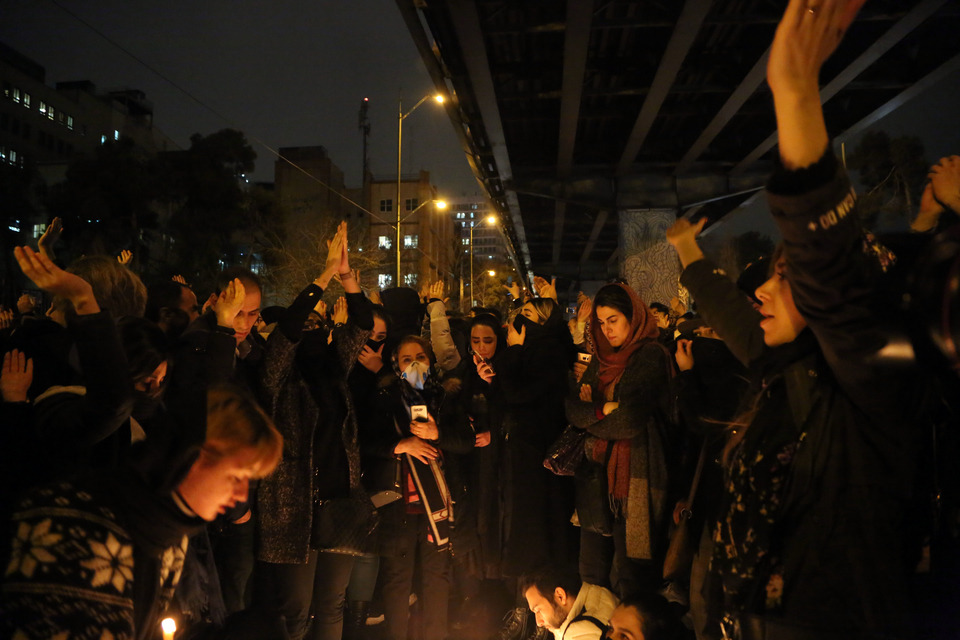
And Soleimani would have been used as a figure who would keep everything together?
Yes, but only for the ruling elite. He could not prevent the toppling of the Islamic regime. The revolution will happen.
What was his official position in the Iranian armed forces?
He had the highest military grade: Sepah-bod. The Revolutionary Guards have different branches. One of the branches is the international branch, which is called Quds. And Soleimani was the head of this Quds.
Do you know who succeeds him in this position?
They appointed someone who is not famous, he is not like Soleimani, he hasn’t that kind of symbolic status. I don’t know how he will act in practice.
What I’ve read (well, the obvious thing that people would say) is that his death would consolidate both the ruling elite for some time and the people, rallying around the flag. Do you think this is happening?
I don’t think so. Let’s take Teheran, there was a big crowd there for his funeral. But Teheran and the areas in its close vicinity have a population of 30 million. Most of the institutions of the ruling elite are also concentrated in this area. Probably they brought one million people to the funeral. A good chunk of the participants were probably the members of all repressive institutions and their families. Yet, the 1 million looses its significance if we compare it with 80 million which is the Iranian population. Although it is undeniable that Soleimani’s death activated the supporters of the regime, this death will by no means purchase any legitimacy among the majority of the population who hate the regime.
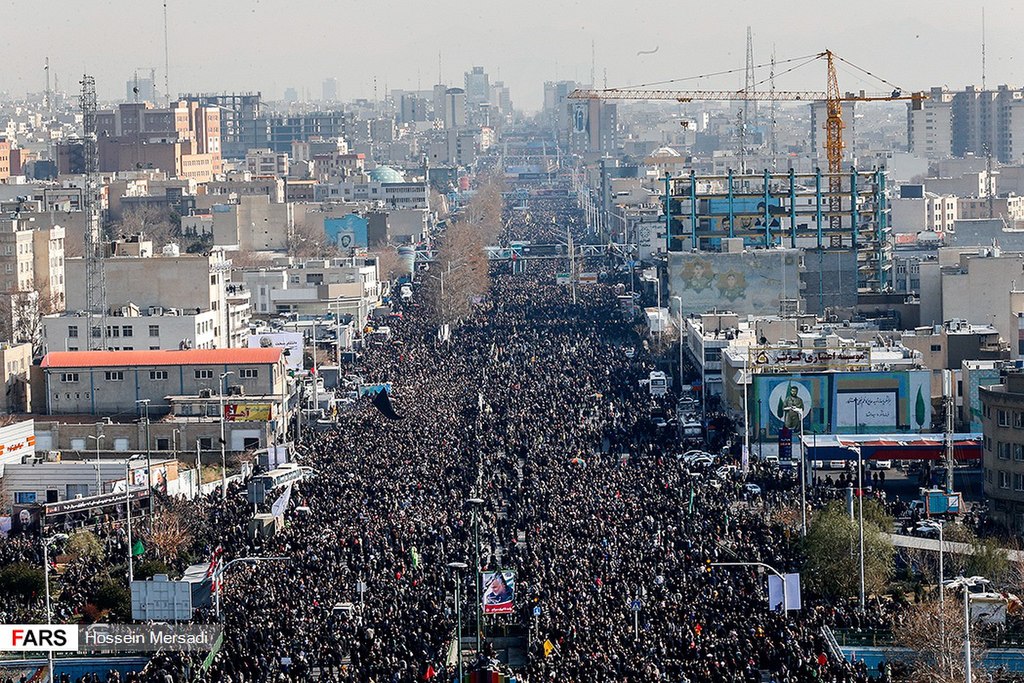
Now, let’s talk about how the recent escalation impacted the international scene.
I think international situation is becoming tense generally, but the particular tension which led to Soleimani’s killing will become calmer. The killing of Soleimani was the peak of military tensions between the US and Iran. Iranian bombings of the US bases in Iraq were symbolic and no one was killed and the American will not retaliate. And the Iranian will not cross the American read line very soon. But there is another scene, which is the most important scene – that Trump has intensified sanctions, imposed new sanctions. Iran completely went out of the nuclear treaty. And that is a very difficult situation because they want to enrich uranium, or other nuclear material, though they still let the international inspectors to visit their nuclear sites. This is a very big headache for the West. And it will lead to further tensions.
But now Trump will need to do something about both the missile strike and the nuclear capabilities.
I think he is not going to do anything about the missile strikes, because the missile strikes were just a spectacle, coordinated with Americans. And he said and is saying “We were not damaged, we were not killed”. And the Iranian foreign secretary Zarif said “We acted decisively, and this is our last action”. So, I think the American are not going to respond to this. The response is probably further sanctions,
Do you think that’s it?
Yes. Militarily it is all there is. That is so for now. Neither the Americans nor the Iranians want to escalate the situation militarily. They brought six B-52 aircrafts, which are Stealth and carry a lot of bombs, because they didn’t know what Iranian would do. Yeah, they preempted, they brought them like a threat. Trump said we are going to bomb 52 sites in Iran. I mean that was before the strikes. Now, although both sides are alert and watching each other, we will not have an immediate military escalation.
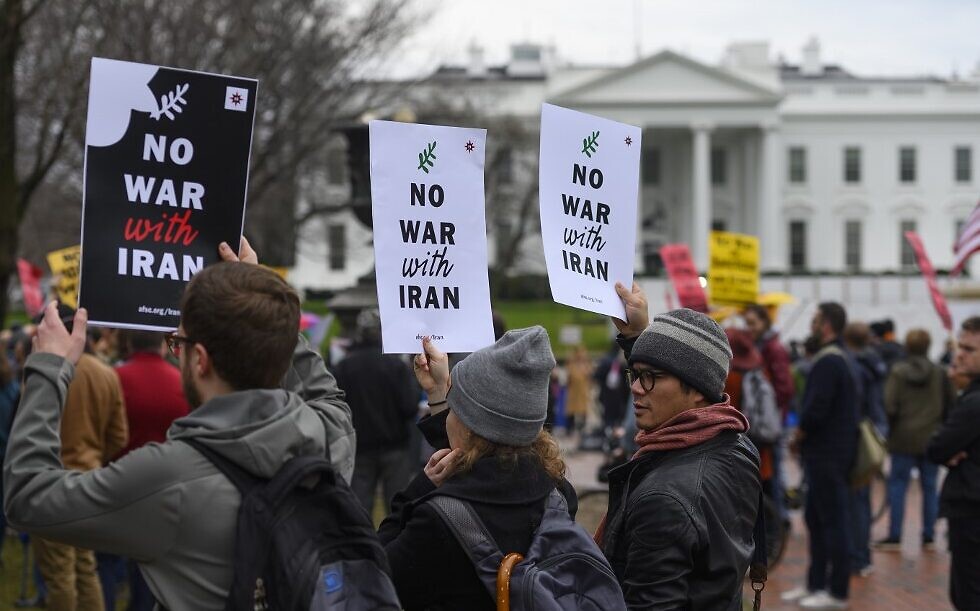
In short term it is quite volatile, we won’t speculate too much about it, but how do you think Iranian society is going to develop in the long run with increasing sanctions, with the government that probably will lose the remaining legitimacy, with Soleimani dead? What is going to happen next in the long term?
We don’t know because at least for the moment the government put these big demonstrations on the streets. The spectacle. Even the Islamic reformists went – many, all of them, except few – they went behind them in this demonstration. They condemn the US. At the same time Soleimani was involved may be not directly in killing the protesters in Iran. They quote him that he said “We can even kill ten millions of them [protesters] for Islam” or something like that. So those contradictions are there: that the legitimacy of Khamenei and Islamic government is profoundly questioned by the people – ordinary people, dispossessed. Before, it was shaken among middle classes, but middle classes wanted to compromise, they didn’t want to make a revolution. The dispossessed want a revolution and are ready to pay the price for it. The regime is totally corrupt, and the cleavage between it and the people is widening.
How would you assess the reaction of the Western left?
The reaction of the rightwing forces is clear – they condemn Khamenei and Soleimani. And Soleimani definitely was a terrorist. But also I think Trump and the US are terrorists. What is terrorism? It is to incite fear through an act of violence. This is what terrorism is politically. So you commit violence not just to target a person, and your main aim is not just to target a person or place, you do it because you want to incite fear. In a war, violence is practiced to defeat an army. Soleimani was a terrorist, and through his acts of terror, he and his associates tried to scare the Americans. But the killing of Soleimani was also an act of terror. Why? Because by killing him the American tried to scared the Revolutionary Guards, Khamenei and their Iraqi’s associates. The left in Europe and the US, people like Jeremy Corbyn, rightfully condemn the American Imperialism, but they also often acts often if not always as apologists for the Islamic regime. They have never consistently supported the waves of the working class protests against the Islamic repression. For example take Jacobin magazine – I don’t know whether they at all published anything about the Iranian protest. As Iran is under the US sanction, they may believe supporting Iranian protests is good for the USA. Iranian government is just a victim of imperialism. Such an argument is simply. Yes, the Iranian clerical regime is against the US. Yet, this regime is reactionary and fascist. Some protesters , especially the monarchists are pro-American, but working class protesters are not pro-American. I believe that leftists need much more nuanced politics on Iran.
Do you see any leftist intellectuals who get it right from your point of view?
I know just one: Kevin Anderson. He belongs to a humanist Marxists-Humanist trend in the US who are influenced by the ideas of Raya Dunayevskaya.
This interview took place after the Iranian Revolutionary Guards struck by missiles a few American bases in Iraq. Since then, there have been two important developments. First, a wave of subversive demonstrations against the Iranian government has taken place in many Iranian universities against the Iranian regime. The pretext was Revolutionary Guard's shooting down of the Ukrainian passenger plane. The protesters have torn and burned down Khamenei’s and Soleimani’s pictures and called them murderers. And have shouted revolutionary slogans. These protests which were clearly a continuation of the November 2019 protests showed that the regime’s efforts to use Soleimani death to repair its deeply damaged legitimacy failed. Second, it seems that Germany, France and Britain are withdrawing from the Nuclear Treaty. This may lead to European sanctions against Iran.
